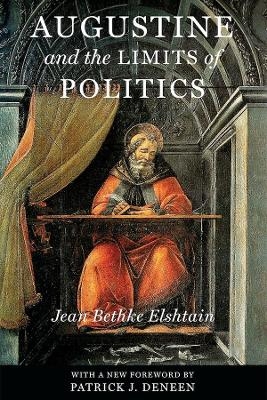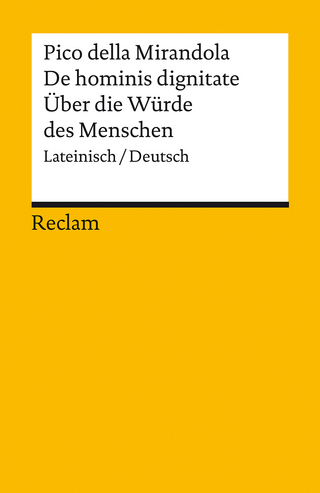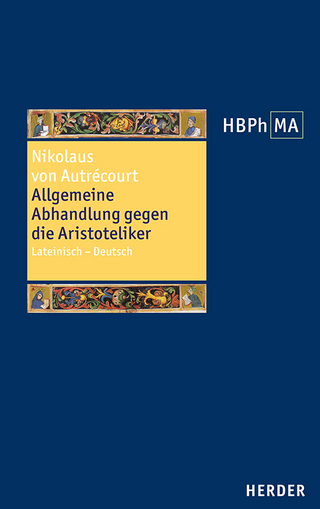
Augustine and the Limits of Politics
Seiten
2018
|
With a New Foreword by Patrick J. Deneen
University of Notre Dame Press (Verlag)
978-0-268-02001-9 (ISBN)
University of Notre Dame Press (Verlag)
978-0-268-02001-9 (ISBN)
- Titel z.Zt. nicht lieferbar
- Versandkostenfrei innerhalb Deutschlands
- Auch auf Rechnung
- Verfügbarkeit in der Filiale vor Ort prüfen
- Artikel merken
Elshtain brings Augustine's thought into the contemporary political arena and applies Augustinian thought to modern problems and misguided politics.
Now with a new foreword by Patrick J. Deneen.
Jean Bethke Elshtain brings Augustine's thought into the contemporary political arena and presents an Augustine who created a complex moral map that offers space for loyalty, love, and care, as well as a chastened form of civic virtue. The result is a controversial book about one of the world's greatest and most complex thinkers whose thought continues to haunt all of Western political philosophy. What is our business "within this common mortal life?" Augustine asks and bids us to ask ourselves. What can Augustine possibly have to say about the conditions that characterize our contemporary society and appear to put democracy in crisis? Who is Augustine for us now and what do his words have to do with political theory? These are the underlying questions that animate Jean Bethke Elshtain's fascinating engagement with the thought and work of Augustine, the ancient thinker who gave no political theory per se and refused to offer up a positive utopia. In exploring the questions, Why Augustine, why now?
Elshtain argues that Augustine's great works display a canny and scrupulous attunement to the here and now and the very real limits therein. She discusses other aspects of Augustine's thought as well, including his insistence that no human city can be modeled on the heavenly city, and further elaborates on Hannah Arendt's deep indebtedness to Augustine's understanding of evil. Elshtain also presents Augustine's arguments against the pridefulness of philosophy, thereby linking him to later currents in modern thought, including Wittgenstein and Freud.
Now with a new foreword by Patrick J. Deneen.
Jean Bethke Elshtain brings Augustine's thought into the contemporary political arena and presents an Augustine who created a complex moral map that offers space for loyalty, love, and care, as well as a chastened form of civic virtue. The result is a controversial book about one of the world's greatest and most complex thinkers whose thought continues to haunt all of Western political philosophy. What is our business "within this common mortal life?" Augustine asks and bids us to ask ourselves. What can Augustine possibly have to say about the conditions that characterize our contemporary society and appear to put democracy in crisis? Who is Augustine for us now and what do his words have to do with political theory? These are the underlying questions that animate Jean Bethke Elshtain's fascinating engagement with the thought and work of Augustine, the ancient thinker who gave no political theory per se and refused to offer up a positive utopia. In exploring the questions, Why Augustine, why now?
Elshtain argues that Augustine's great works display a canny and scrupulous attunement to the here and now and the very real limits therein. She discusses other aspects of Augustine's thought as well, including his insistence that no human city can be modeled on the heavenly city, and further elaborates on Hannah Arendt's deep indebtedness to Augustine's understanding of evil. Elshtain also presents Augustine's arguments against the pridefulness of philosophy, thereby linking him to later currents in modern thought, including Wittgenstein and Freud.
Jean Bethke Elshtain (1941–2013) was one of the nation's most prominent and provocative thinkers on religion, political philosophy, and ethics. She was the Laura Spelman Rockefeller Professor of Social and Political Ethics in the Divinity School, Political Science, and the Committee on International Relations at the University of Chicago. She was the author of numerous books, including Sovereignty: God, State, and Self. Patrick J. Deneen holds the David A. Potenziani Memorial College Chair in the Department of Political Science at the University of Notre Dame.
| Erscheint lt. Verlag | 30.4.2018 |
|---|---|
| Reihe/Serie | Catholic Ideas for a Secular World |
| Vorwort | Patrick J. Deneen |
| Verlagsort | Notre Dame IN |
| Sprache | englisch |
| Maße | 140 x 216 mm |
| Gewicht | 230 g |
| Themenwelt | Geisteswissenschaften ► Philosophie ► Philosophie des Mittelalters |
| Sozialwissenschaften ► Politik / Verwaltung ► Politische Theorie | |
| ISBN-10 | 0-268-02001-9 / 0268020019 |
| ISBN-13 | 978-0-268-02001-9 / 9780268020019 |
| Zustand | Neuware |
| Haben Sie eine Frage zum Produkt? |
Mehr entdecken
aus dem Bereich
aus dem Bereich
Lateinisch - Deutsch
Buch | Hardcover (2024)
Herder (Verlag)
70,00 €
Redewendungen aus der Natur
Buch | Hardcover (2024)
Regionalia Verlag
7,95 €


